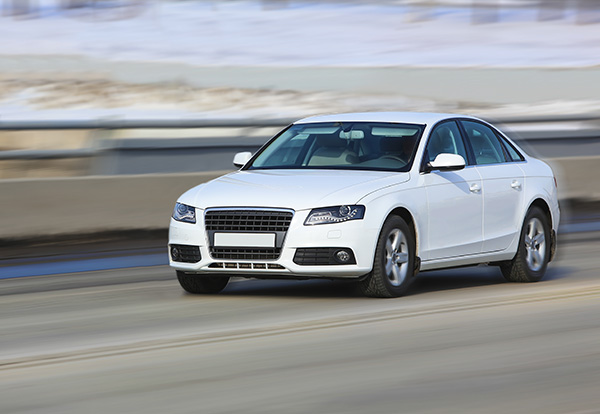
Have you noticed a subtle but unsettling vibration creeping through your steering wheel, floor, or even your seat? Car vibrations at high speeds are more than just an annoyance—they signal an underlying problem that needs attention. But what exactly is causing your car to vibrate when you're cruising down the highway? We'll share the most common culprits behind this issue and how you can get back to a smoother ride.
1. Unbalanced or Worn Tires
One of the most common reasons your car might vibrate at high speeds is unbalanced or worn-out tires. Over time, tires naturally wear down, but uneven wear can cause serious issues. If your tires aren’t balanced correctly or if they have worn down in specific spots, they can cause vibrations as the weight distribution is uneven. This is especially noticeable at higher speeds when the imbalance becomes more pronounced. Tires that have been improperly inflated or have a bulge can also contribute to the problem. Make sure to regularly check your tire pressure and inspect them for signs of uneven wear.
Getting your tires rotated and balanced by a professional can resolve this issue. If the wear is too extensive, it may be time to invest in a new set of tires.
2. Wheel Alignment Issues
Ever hit a nasty pothole or curb and felt like your car was off-kilter afterward? That jolt could have knocked your wheels out of alignment. Misaligned wheels can lead to vibrations that increase with speed. Not only that, poor alignment can cause your tires to wear unevenly, further aggravating the vibration issue. Wheel alignment is critical for your tires' longevity and smooth driving.
If you’ve noticed your car pulling to one side or if your steering wheel isn’t centered while driving straight, it’s time to get a wheel alignment. Proper alignment will stop vibrations and make your ride more stable.
3. Damaged or Worn Suspension Components
Your car’s suspension system is designed to keep your vehicle stable and absorb shocks while you drive. If any part of the suspension, such as the shock absorbers, struts, or bushings, becomes damaged or worn, it can cause vibrations, especially at higher speeds. A weakened suspension system may not absorb road bumps efficiently, transferring those vibrations directly to your car’s cabin.
A professional inspection of your suspension system can pinpoint the issue. Replacing worn parts like shocks or bushings can restore a smoother ride.
4. Brake Rotor Issues
Although brake problems generally show up during braking, in some cases, warped brake rotors can cause vibrations even when you're not hitting the brakes. Warped or damaged rotors can create uneven friction, leading to vibrations that can become more noticeable at high speeds. This is particularly true if you’ve noticed the steering wheel or brake pedal vibration.
Warped brake rotors need to be resurfaced or replaced. If your brake rotors are the cause, it’s best to get them looked at as soon as possible since brake issues can escalate quickly into more serious safety concerns.
5. Driveshaft or CV Joint Problems
The driveshaft is responsible for transferring power from the engine to the wheels. If the driveshaft or its components—such as the CV (constant velocity) joints—are damaged, it can lead to vibrations that intensify with speed. This issue can often cause a rhythmic thumping noise in addition to the vibration.
A faulty driveshaft or worn CV joints need professional attention. Replacing these components can eliminate the vibrations and restore proper wheel power transfer.
6. Engine or Transmission Issues
While tire and suspension problems are more common causes of car vibrations at high speeds, engine or transmission issues can also be to blame. A misfiring engine, worn spark plugs, or transmission problems can all cause shaking and shuddering when driving at faster speeds. If the engine isn’t getting the right amount of fuel, air, or spark, it can cause a rough ride.
Regular maintenance, like changing spark plugs and air filters, as well as checking transmission fluid levels, can keep these critical components running smoothly. If you suspect a more serious issue, have your engine and transmission checked by a professional.
If high-speed vibrations are making your drives less enjoyable, let Complete Automotive Repair Specialists pinpoint and fix the issue. Our experts are ready to help with tire balancing, alignments, and more.